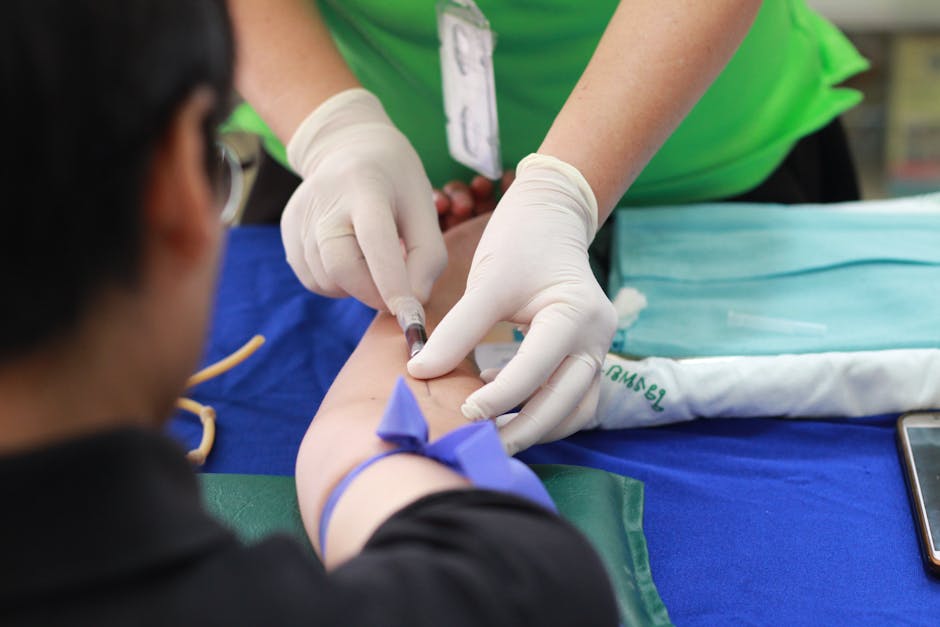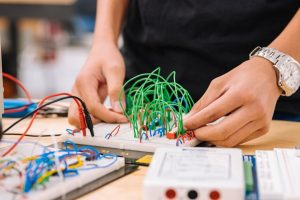No products in the cart.
The Human Touch: Balancing AI and Care in Nursing
AI is transforming nursing by enhancing patient care while emphasizing the irreplaceable human touch. Explore the evolving landscape of healthcare.
Boston, USA — As nurses rush through the bustling halls of hospitals, a new companion has joined the ranks: artificial intelligence. These digital assistants are not just tools; they are transforming the nursing profession, enhancing care while posing a question that reverberates through the healthcare world: Can technology truly replace the human touch?
As we navigate this uncharted territory, the integration of AI in nursing offers both promise and challenges. Nurses today are not merely caregivers; they are becoming tech-savvy professionals, blending their traditional skills with innovative technologies. This hybrid skill set is crucial for the future of healthcare.

In this evolving landscape, AI tools like predictive analytics and virtual assistants are enhancing the capabilities of nurses. For instance, AI algorithms can analyze patient data, predicting complications before they arise. This not only improves patient outcomes but also empowers nurses to focus on what they do best: providing compassionate care.
 Economic Policies
Economic PoliciesProperty Price Growth Stalls Amid Budget Concerns
Property price growth is slowing, influenced by budget fears. Discover the implications for buyers and investors.
Take, for example, the experience of Sarah, a registered nurse in a Boston hospital. After her facility implemented an AI system to monitor patient vitals and flag abnormalities, she found herself with more time to engage with her patients. “It’s like having an extra set of eyes,” she recalls. “I can be more present with my patients, understanding their needs on a deeper level.”
Some healthcare professionals express concern that reliance on technology might erode the interpersonal relationships that are central to nursing.
However, the rise of AI in nursing is not without its critics. Some healthcare professionals express concern that reliance on technology might erode the interpersonal relationships that are central to nursing. “We must be cautious,” warns Dr. Emily Tran, a nursing educator at a leading university. “The art of nursing lies in the connection between the caregiver and the patient. If we prioritize technology over that connection, we risk losing an essential aspect of care.”
Indeed, the challenge lies in finding the right balance between augmented care and human touch. As AI continues to evolve, the nursing profession must adapt, ensuring that technology serves as a support system rather than a replacement.
The educational landscape is also shifting. Nursing programs are beginning to incorporate technology training into their curricula. Institutions are recognizing that future nurses must be equipped with both clinical skills and digital literacy. “We’re training a new generation of nurses who can seamlessly integrate technology into their practice,” says Dr. Tran. “They will need to be proficient in using AI tools while maintaining the empathy and compassion that define our profession.”
 EdTech
EdTechTransforming STEM Education: A Vision for the Future
STEM education is evolving rapidly, particularly in Borneo, where innovation meets education. Discover the trends shaping the future.
Read More →As we look to the future, the role of nursing will undoubtedly continue to evolve. The World Health Organization predicts a global shortage of nurses by 2030, making it imperative that healthcare systems innovate to meet rising demands. AI could be part of the solution, helping to streamline workflows and enhance patient care, but it will require a workforce that is not only skilled in technology but also deeply committed to the human aspects of healing.
Moreover, the hybrid model of care is gaining traction not only in nursing but across various healthcare fields. Physicians, therapists, and other allied health professionals are also beginning to embrace AI tools, reshaping how care is delivered. This trend signifies a broader shift towards a more integrated approach to healthcare, one where technology and human expertise work hand in hand.
Institutions are recognizing that future nurses must be equipped with both clinical skills and digital literacy.
For young professionals entering the healthcare field, this intersection of technology and care presents an exciting opportunity. The demand for skilled nurses who can navigate both realms is poised to grow, creating a wealth of career possibilities. As the healthcare landscape transforms, so too will the pathways for aspiring nurses.
 Business Strategy
Business StrategyGen Z’s Distrust of Corporations: A Deep Dive
Gen Z's skepticism towards corporations is reshaping consumerism. Discover the factors driving this shift and what brands must do to…
Read More →Ultimately, the future of nursing—like the future of healthcare—will hinge on our ability to embrace change while honoring the core values that define the profession. As we integrate AI into nursing practice, we must remember that technology is a tool, not a substitute. The heart of healthcare will always beat in the relationships we cultivate, the empathy we offer, and the human touch we provide.











